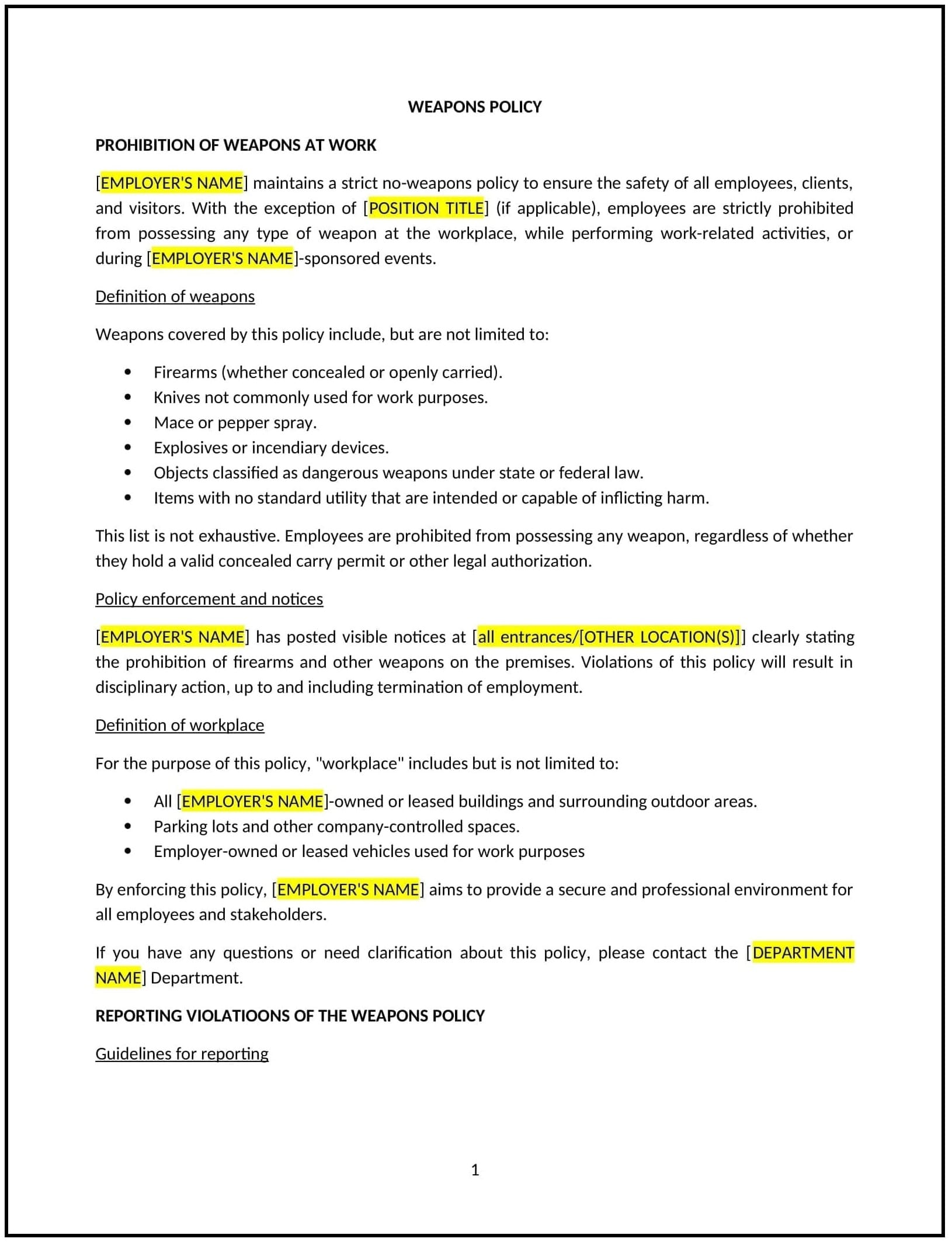Got contracts to review? While you're here for policies, let Cobrief make contract review effortless—start your free review now.

Customize this template for free
Weapons policy (Oregon)
This weapons policy is designed to help Oregon businesses maintain a safe workplace by outlining the restrictions on weapons possession and usage on company premises. The policy establishes clear expectations, reporting protocols, and enforcement measures to promote a secure work environment.
By implementing this policy, businesses can reduce risks, ensure employee safety, and address potential incidents effectively.
How to use this weapons policy (Oregon)
- Define prohibited weapons: Clearly specify the types of weapons banned on company property, such as firearms, knives (beyond utility tools), and other dangerous items.
- Specify locations covered: Include all areas where the policy applies, such as offices, parking lots, and company-owned vehicles.
- Establish exceptions: Address permissible circumstances, such as licensed security personnel or employees with legal rights under Oregon’s concealed carry laws, if applicable.
- Outline reporting procedures: Encourage employees to report violations or concerns to HR or a designated contact immediately.
- Detail enforcement actions: Specify the consequences for policy violations, including disciplinary measures or legal action if necessary.
- Include signage and communication: Post clear notices in visible areas and communicate the policy to all employees.
- Review regularly: Periodically assess the policy to ensure alignment with Oregon laws and workplace needs.
Benefits of using this weapons policy (Oregon)
Implementing this policy provides several advantages for Oregon businesses:
- Enhances safety: Minimizes risks of harm to employees and visitors.
- Promotes clarity: Clear guidelines reduce misunderstandings about what is permitted.
- Demonstrates commitment: Shows employees and clients that the business prioritizes security.
- Reduces liability: Mitigates the risk of liability associated with weapons-related incidents.
- Reflects Oregon-specific considerations: Tailoring the policy to local laws ensures relevance and compliance.
Tips for using this weapons policy (Oregon)
- Communicate the policy clearly: Include the policy in onboarding materials and provide regular reminders to employees.
- Monitor compliance: Conduct periodic checks to ensure adherence to the policy.
- Provide training: Educate employees on recognizing and responding to potential safety threats involving weapons.
- Collaborate with security professionals: Work with law enforcement or private security firms to enhance workplace safety measures.
- Address concerns promptly: Take immediate action on reported violations to maintain trust and security.